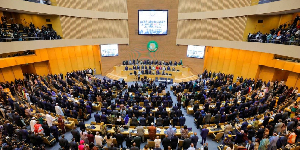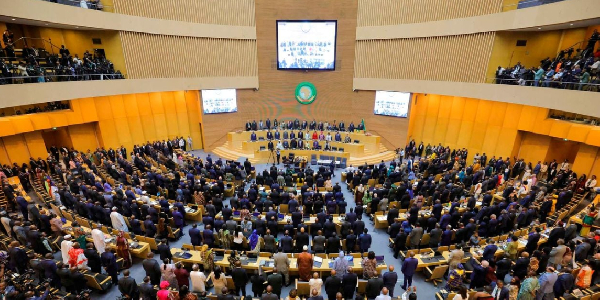 African heads of state and delegates attend the opening of the 38th Ordinary Session
African heads of state and delegates attend the opening of the 38th Ordinary Session
The African Union’s Peace and Security Council has recommended the deployment of a high-level delegation and a special envoy to Madagascar to address the island nation’s political crisis following a surge in violent protests that has seen the president flee.
The Council condemned the violence and deteriorating situation in Madagascar, citing the destruction of property and reported loss of life.
Madagascar’s President Andry Rajoelina confirmed on Monday that he had gone into hiding in a “safe place” after an elite military unit joined the nationwide protests and threatened to topple his government.
“The AU requests the Chairperson of the AU Commission to urgently appoint a special envoy on Madagascar, to work closely with the Panel of the Wise, and to strengthen the mandate of the AU Liaison Office in Madagascar, with the view to reinforcing facilitation, mediation and stabilisation efforts in the country, in close collaboration with the Southern African Development Community (SADC) and the Indian Ocean Commission,” a communique dated October 13, 2025 said.
“It also requests the Chairperson of the AU Commission to establish a follow-up mechanism to support the reconciliation and dialogue process in Madagascar.”
The Council also urged the Malagasy Armed Forces to remain apolitical and uphold their constitutional mandate, warning against military interference in governance.
“The AU totally rejects any attempt at unconstitutional changes of government in the country; strongly calls upon the protesters to use available legal channels to address any legitimate grievances; and urges all Malagasy stakeholders, both civilian and military, to exercise calm and restraint,” it said.
The meeting, chaired by AUC boss Mahmoud Ali Youssouf, emphasised the need for an inclusive national dialogue and called for the reactivation of the 2011 Roadmap for Ending the Crisis in Madagascar, which was enacted into law to guide reconciliation and democratic transition.
It further called on the government to address the structural causes of the crisis through a “whole of government-whole of society” approach, ensuring the participation of women, youth and other critical stakeholders.
The unrest in Madagascar began in late September, triggered by allegations of economic hardship and growing dissatisfaction with Rajoelina’s administration.
Demonstrators have clashed with the police in major cities, demanding the president’s resignation and political reforms.
Rajoelina, who came to power in 2009 in a military-backed takeover and was re-elected in 2018, has faced repeated accusations of authoritarianism and mismanagement.
The crisis deepened last week when elements of the military reportedly refused orders and joined protesters, raising fears of a full-scale coup.
The elite Capsat unit announced on Sunday that it has taken control, forcing President Rajoelina to flee the country.
